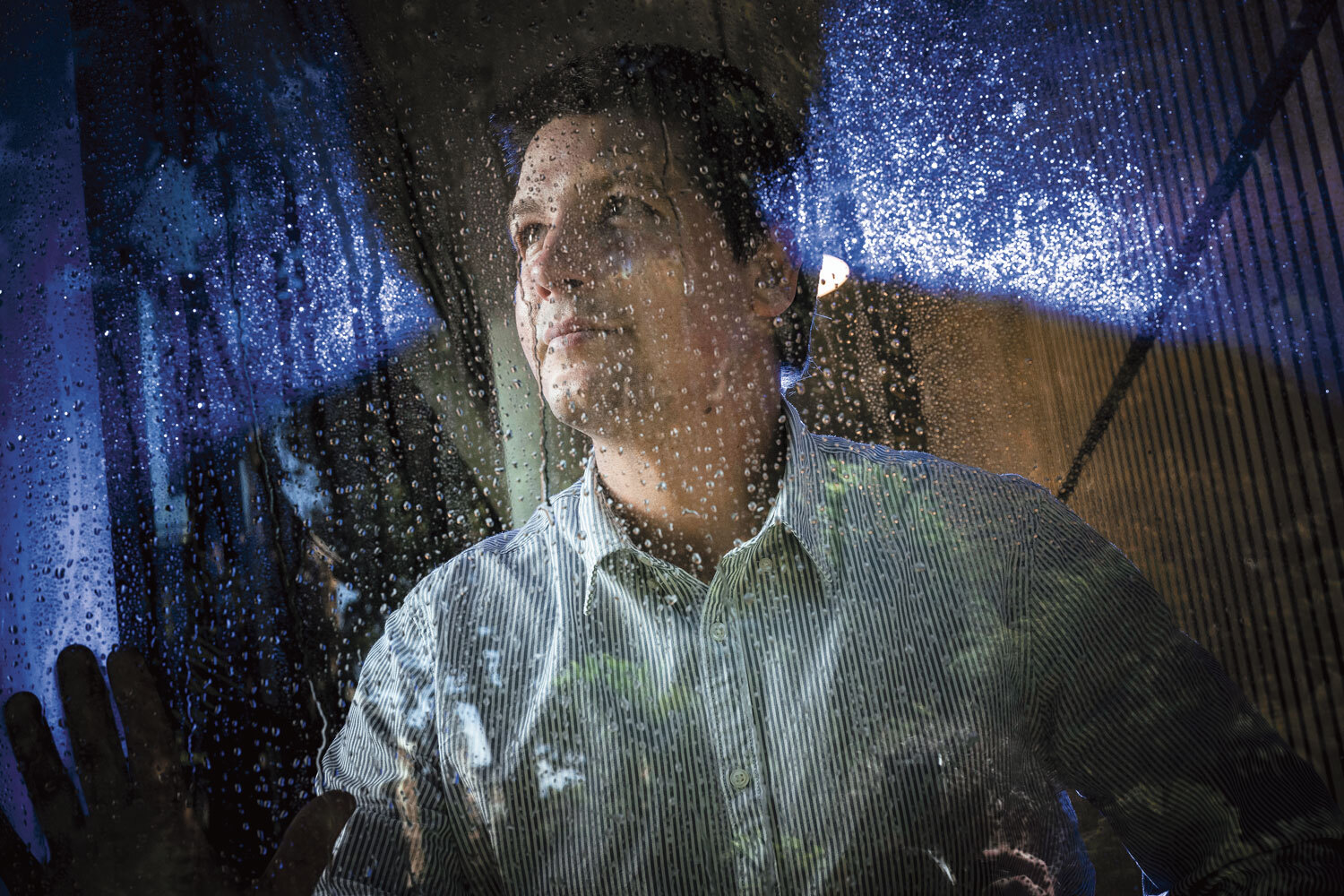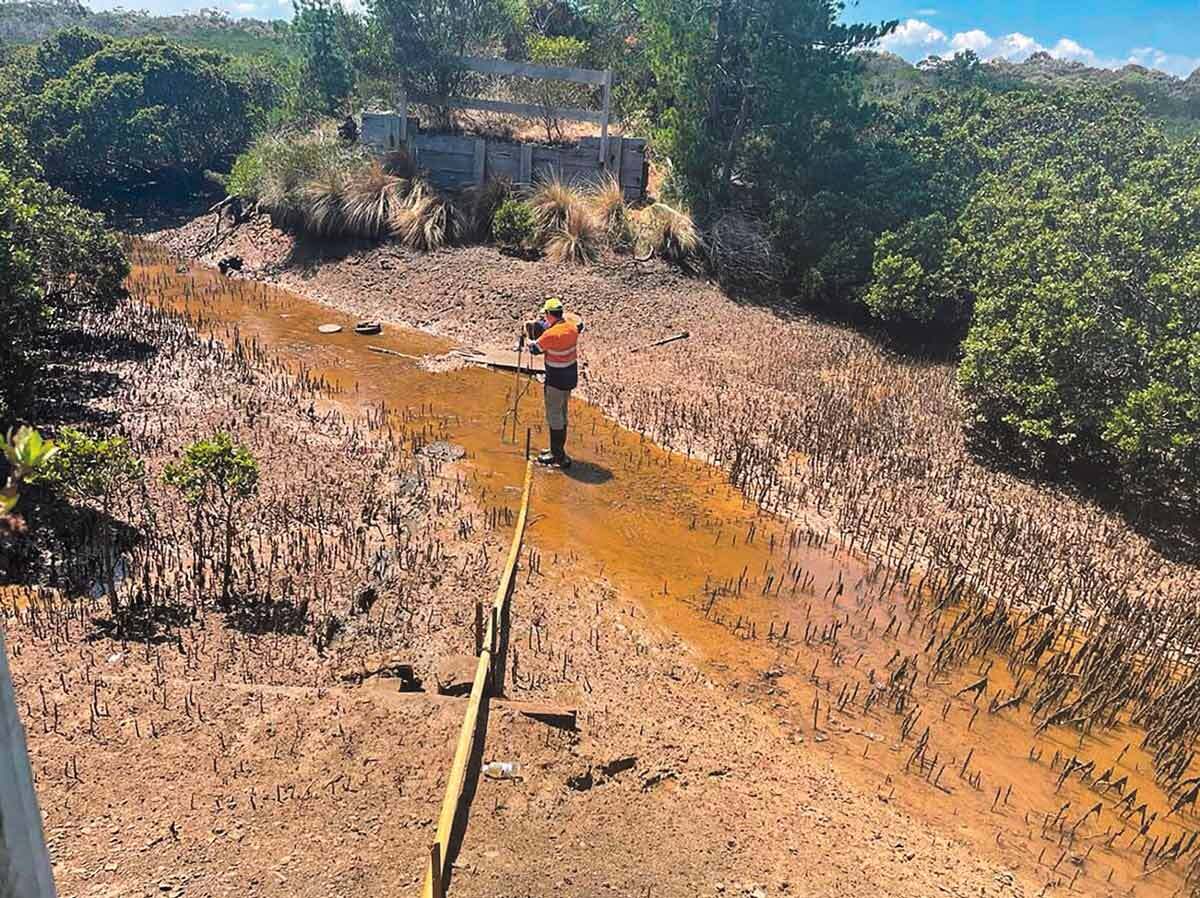A range of scholarships, including one funded by University of Melbourne alumni from his home town of Mildura, helped carry Sam Skinner on his nine-year academic journey. Now, his innovative work is helping our wastewater management industry become more sustainable.
Sam Skinner spent his childhood swimming happily in the vast waters of the Murray River. It was a privilege that, even as a boy, he never took for granted.
But it wasn’t until he travelled to Tanzania to teach physics to senior high school students that he fully understood the importance of water to a community and to the liveability of an area and its inhabitants. The four-month experience inexorably shaped his life’s journey.

Sam owes his blossoming career in sustainable water management to hard work and dedication, but also to the generosity of the benefactors behind the scholarships that supported his nearly nine years at the University, helping him through his Bachelor of Science, Master of Engineering and PhD.
It’s a long and impressive list: the Mildura Alumni Scholarship Fund, the Melbourne Access Scholarship, the AJ Francis Scholarship, the FA Kernot Bequest Scholarship, the Master of Engineering Merit Scholarship, and the Elizabeth and Vernon Puzey Scholarship, among others.
“They allowed me to have an amazing time at university and to learn from incredibly gifted academics,” he reflected gratefully.
Indeed, on graduating from St Joseph’s College in Mildura 14 years ago, Sam had one key aspiration – to attend the University of Melbourne.
“It was the top university that most of us wanted to get into,” he recalled, although he was less clear about what he would study. He was interested in chemistry, maths and physics, and had an idea that he wanted to do something in the sciences, preferably related to the environment. “But I didn’t know what that looked like,” he said.
“The new model of learning had just been introduced by the University, so that was ideal in providing me with the opportunity to work out as I studied where my real passions and interests lay.”
He recognised, too, that a scholarship could provide a pathway to take his studies to higher levels.
The Mildura Alumni Scholarship Fund, which underpinned his Bachelor of Science degree, resonated sweetly with Sam.
The shared history between Mildura and the University traces back to 1947 when an all-residential campus was established at a former RAAF base in the regional city, offering courses in the faculties of Architecture, Engineering, Medicine and Science.
Although it was closed two years later, the ties that bound the city and the University endured. In 2005, 170 Mildura campus alumni acknowledged the enduring strength of that relationship when they established a fund to provide scholarships to undergraduate students from Mildura and the local region, who were facing disadvantaged circumstances.
I loved the Mildura connection with this scholarship... It – and the other scholarships – have opened the University up to students who might otherwise not have had the opportunity to be part of such a diverse and academically rich environment.
“The scholarship helps students access the University, and I also think the University benefits greatly from these students.” In tandem with a weekend job, the scholarships made it possible for Sam to focus on his studies and to enjoy some of the University’s sporting pursuits, including cricket. He’s still playing for the University’s club.

Sam left for Tanzania shortly after he completed his science degree. He was curious about the country, having long enjoyed stories about its beauty and wildlife. But it was its lack of a wastewater structure and scarcity of water that most intrigued him. The experience proved a turning point in his life, galvanising his interest in the field.
When he returned to Australia, he worked for a time with a company based in Ocean Grove, on Victoria’s Bellarine Peninsula, which designed and built wastewater treatment plants. He also decided to study a Master of Chemical Engineering.
However, he struggled with the demands of work and study and was rescued again by several scholarships. He was awarded a Master of Engineering Merit Scholarship and received other financial support, allowing him to concentrate on his course work.
One constant source of that assistance throughout his student years was the Student Support Fund, a generous initiative of the University community to support students in realising their potential. The fund, which offers immediate assistance to students in need of essential items such as food, transport, housing, medical or academic costs, came into its own during the COVID-19 pandemic, with the University’s generous community of donors and alumni contributing more than $8M.
Like others before him, Sam worked hard to justify his benefactors’ belief in him and soon his work on increasing the efficiency of sludge treatment and filtration, and the important flow-on for water recycling, which formed the basis of his PhD, attracted the attention of industry experts. His finished paper began appearing in citations.
He was always conscious that his success was due in part to the generosity of people he had never met, whose donations funded further scholarships throughout his PhD.
In that period, he also won the Balwyn Rotary Club’s Environmental Sustainability Award. By the time his formal study came to an end, Sam was a man of academic substance. He was hired as a Senior Process Engineer by Aurecon, a design, engineering and advisory company that was named Australasia’s most innovative company in 2020 by The Australian Financial Review.
One of the central threads of his work is resource recovery, and the circular economy. “Rather than seeing wastewater as a waste, it’s about extracting its value – recovering the water, the nutrients and the energy,” he explained.
As he strides confidently into his future, he is mindful of all the donors whose kindness, great and small, made his career trajectory possible.
They allowed me to be able to focus on a research pursuit in wastewater treatment and recycling. I would never have had the opportunity to dig so deeply into an applied research program without their support.
"And to be able to go from that into the job I'm currently doing – and love – has been amazing. I would never be on this career path without the huge amount of support that has been there for me every step of the way. "